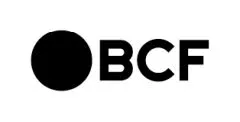Non-fungible tokens (NFTs) are still a hot topic. In this post, you will find out about some of the conditions of use that are essential to their commercialization.
Last February, the famous leather products manufacturer Hermès International was successful in obtaining a judgment from the Manhattan Federal Court in which a jury ruled that selling NFTs under the name "MetaBirkin" constituted an infringement of Hermès's rights under their trademark BIRKIN.
While this ruling relates to a specific case, it will undoubtedly deter those who might be tempted to use third-party trademarks in the metaverse or in connection with digital objects. It also provides trademark owners with some reassurance as to the scope of their registrations, confirming that digital versions of tangible goods can be considered as an infringement of those goods and that registrations covering tangible goods can be used to enforce rights against digital goods.
It is undeniably trendy to invest in the virtual object market, as shown by the number of companies venturing into this field. However, in doing so, care must be taken to make sure that the terms of use associated with the sales platforms and the NFTs themselves are both complete and adequate.
Terms of use typically provide that the NFT purchaser will hold title to the NFT, along with a copyright license and possibly a trademark license to display and sell the NFT.
In general, the license limits use of the NFT to personal use. It is also possible, however, to allow the NFT to be used for commercial purposes, allowing the owner to benefit from such use, if they so desire. The creators of the "Bored Ape Yacht Club" and "CryptoPunks" NFTs, which are among the well-known NFTs, have chosen this path.
However, any use must be properly circumscribed. For example, it may be interesting to add a morality clause to the NFT's use. This will ensure that the NFT will not be used in an immoral manner, especially regarding messages of hatred, violence, intolerance or defamation, or otherwise controversial. This may include, among other things, any use of the NFT for content related to drugs, sexuality, or political or religious views. Any illegal use or use that would in any way infringe on the rights of third parties should also be prohibited.
It may be appropriate to specify that NFT transfer will only be valid if the seller notifies the buyer of the associated terms of use and if the buyer agrees to those terms. This would minimize the potential for the buyer to subsequently violate the terms and conditions and claim that they were unaware of them.
Finally, we would like to point out that having strong terms of use in place is also essential to protect the trademarks in association with which the NFTs are used. A trademark owner must be able to prove that it has control over the use of its trademark by each of its licensees. Otherwise, the trademark could be considered diluted, lose its distinctive character and thus its legal and pecuniary value.
The content of this article is intended to provide a general guide to the subject matter. Specialist advice should be sought about your specific circumstances.



